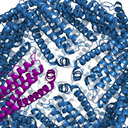Oral cancer awareness at chemist's and herbalist's shops: new targets for educational interventions to prevent diagnostic delay.
Słowa kluczowe
Abstrakcyjny
OBJECTIVE
To assess whether chemist's and herbalist's shops were offering appropriate advice for patients seeking guidance on a potentially malignant oral lesion.
METHODS
A cross-sectional study was undertaken using the standardised patient approach on a representative sample of chemist's and herbalists' shops in Galicia (Spain). The introductory statement was "I have a painful ulceration on the tongue for about a month now. What would you advise?" The study sample was selected by stratified random sampling for a 5% precision, and contacted by telephone. To disclose a hypothetical bias in telephone answers, another study was designed for two provinces where pharmacies were visited in one province and herbal shops in the other one.
RESULTS
A total of 460 establishments out of 1534 were contacted: 306 pharmacies (66.5%) and 154 herbalist's shops (33.5%). Patients were adequately referred from pharmacies significantly more frequently than were from herbalist's shops, which mostly prescribe over-the-counter (OTC) remedies (86.4%). Community pharmacy assistants resulted more likely to recommend OTC remedies (55.6% vs. 13%) and significantly less likely to refer patients to a dentist or physician than pharmacists. The most frequent OTC offered at chemists' were mouthwashes, while herbalist's shops prescribed propoleum (50%) and tea tree (Melaleuca alternifolia) preparations (23.8%).
CONCLUSIONS
New off-clinical counsellors (herbalists and pharmacy assistants) have been identified as potential creators of patient diagnostic delay in oral cancer, as well as the need for increasing oral cancer awareness amongst community pharmacists. Educational strategies to improve advice and referral should be designed for these collectives.


